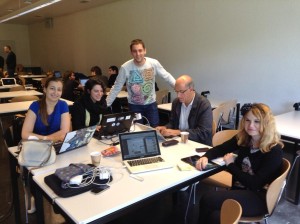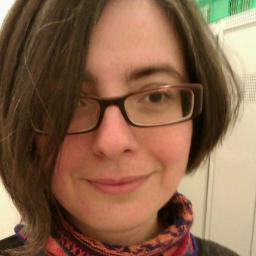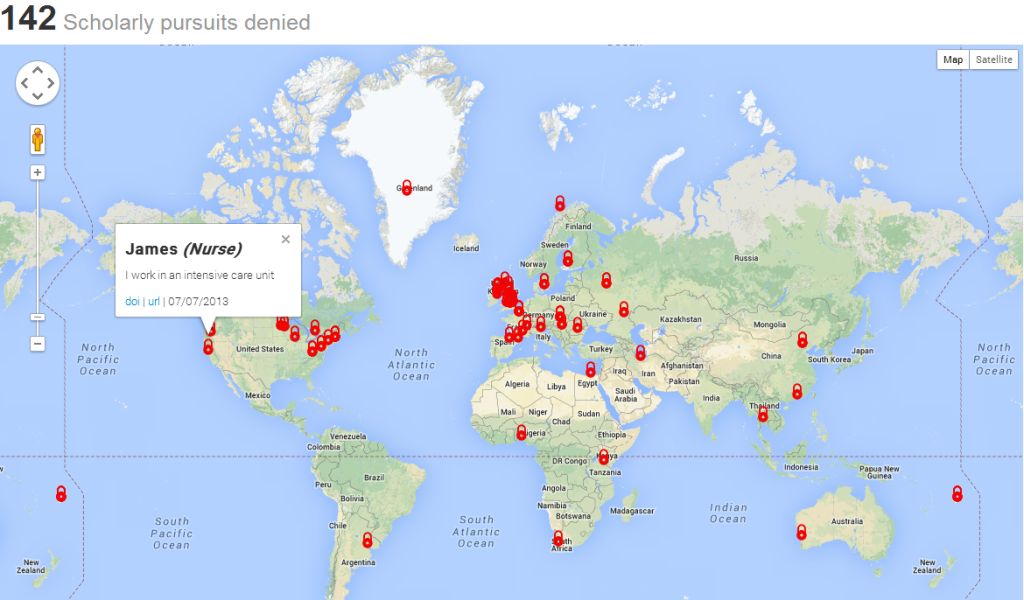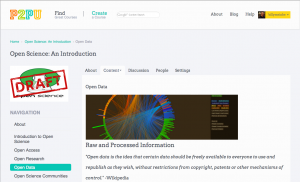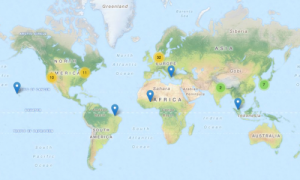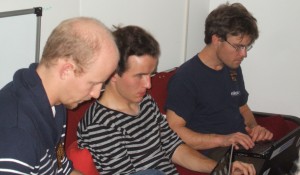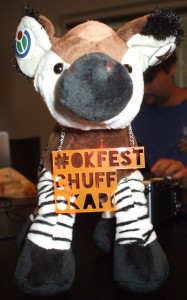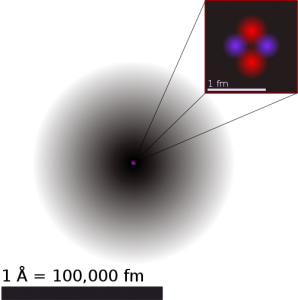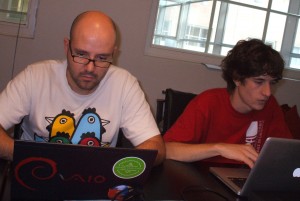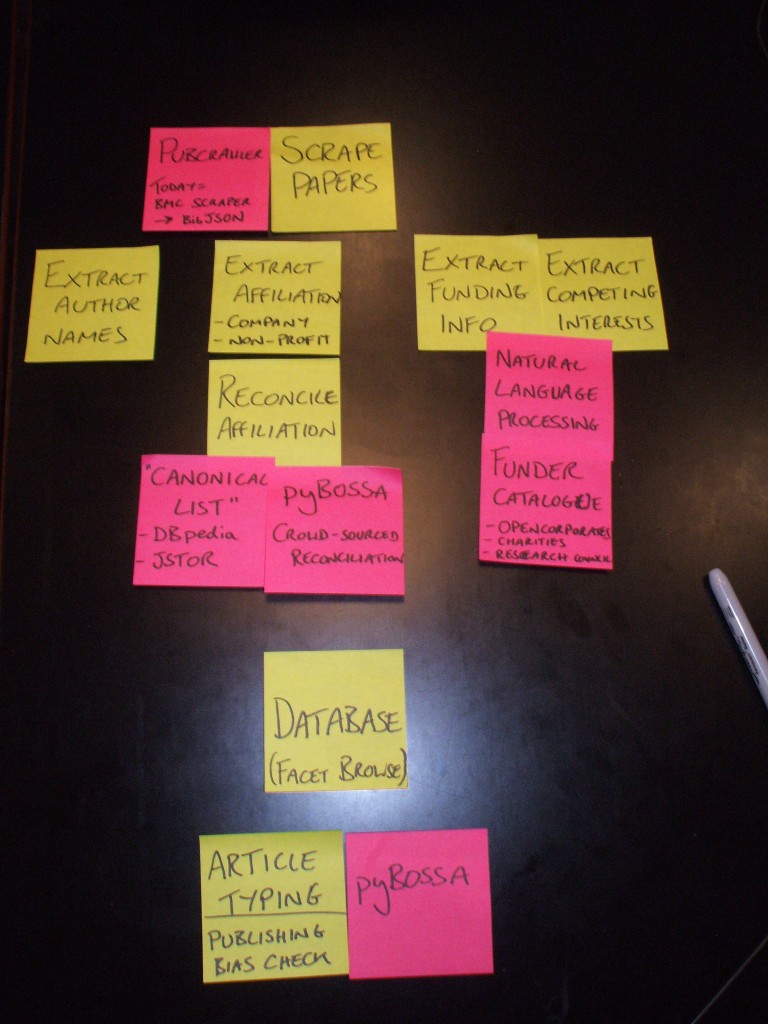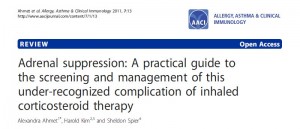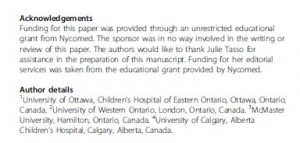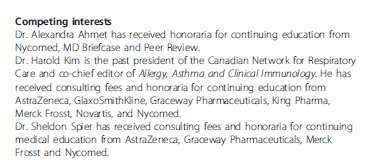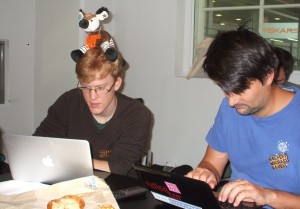Join us geeking out Thursday, Sept 19, 10:00 to 17:00 CEST at #OKCon and online! Details are below. See also our announcement of this event and everyone’s votes for favourite projects.
For WikiSprint: Global overview of Open Science initiatives please join us remotely via the coordinating Etherpad (found: https://etherpad.mozilla.org/xpQvKfNv5c) and working either here or on Wikipedia.
For other projects, join us in IRC: #openscience on freenode or via the web at http://webchat.freenode.net/?channels=openscience. Find us on Twitter @MaliciaRogue, @stefankasberger, @openscience, and at #openscience or #OKCon.
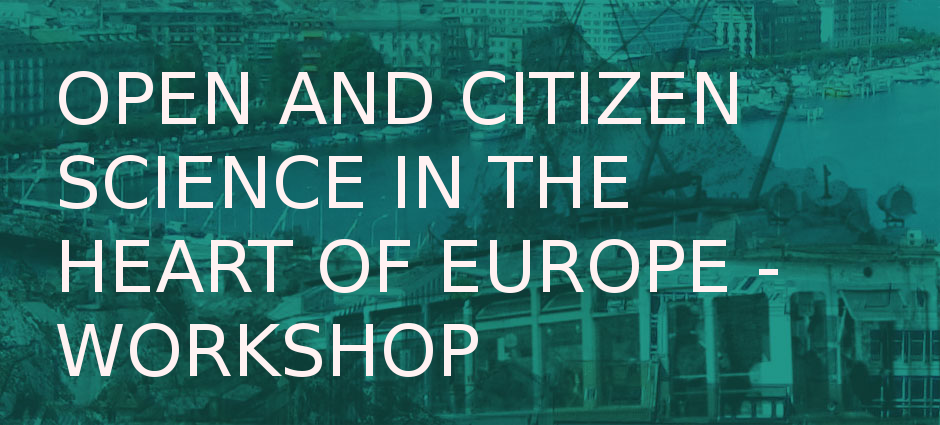
Proposal 1
Title: “Open Data in Research: an illusion?”
Details: Despite the dazzling development of the open access movement, open data initiatives in science and research are still trailing in involvement. Additionally, disparities in research data sharing and openness are huge across scientific communities and domains.
Last but not least, formats and licensing terms greatly vary even within specific field. This suggested activity will wrap-up current initiatives and achievements prior to formalizing the challenges ahead. The middle-term goal is to bootstrap connections converging to a true institutional change that leads to more participative, shareable and transparent science: the science of tomorrow.
Support: Open Data enthusiasts, geeks and science nerds welcome.
Comment: Remote participation welcome (IRC, pad). Hashtag: #OpenSciData
Proposal 2
Title: “An inclusive approach to open science”
Details: The discourse in open science often runs along the lines of open vs. closed approaches. In reality though, most researchers act in-between those two extremes. From successful examples such as genomics, we can see that open science is essentially a community effort (cp. Bermuda Principles). Therefore, we (the Austrian chapter of the OKFN) advocate an inclusive approach to open science.
From a community perspective, it is the commitment to openness that matters, and the willingness to promote this openness on editorial boards and program committees. It is therefore important to get as many researchers on board as possible. This approach is _not_ intended to replace existing initiatives but to make researchers aware of these initiatives and helping them with choosing their approach to open science.
The idea of this hackathon is to create a manifesto/declaration for such an inclusive approach. A draft and a first discussion can be found here: http://science20.wordpress.com/2013/06/25/an-inclusive-approach-to-open-science/
We invite contributions from researchers in various disciplines on their experiences with advocating and implementing open science practices. This could be in the form of presentations, lightning talks, or focused discussions.
Support: We mainly need creative minds; designers, illustrators, and animators are welcome as we could produce a short video about the idea.
Comment: N/A
Proposal 3
Title: “Wikisprint: Global overview of OpenScience initiatives”
Details: A few months ago an event was organised to agregate links and knowledge about P2P initiatives. http://codigoabiertocc.wordpress.com/2013/08/07/globalp2p-the-wind-that-shook-the-net/
In partnership with Michel Bauwens of the P2P Foundation and HackYourPhd I’d like to organize a similar event for OpenScience initiative. The P2P Foundation aims to promote and document peer to peer practices in a very broad sense. The collective HackYourPhd federate numerous students, researchers and citizens interested in the production and the sharing of knowledge. Being an administrator on the French Wikipedia, I will likely get support from the Wikimedia communities.
This “wikisprint” will be set up as follow:
- The idea will be to announce the event a few days ago and invite people on twitter and other plateform to share their initiative with us.
- We could for exemple use the hashtag #OpenScienceWiki
- During the hackathon People in Geneva but also elsewhere could help to agregate the links in a wiki, interact with people all around the world and invite them to share their initiatives.
We can use the P2Pwiki: http://p2pfoundation.net/Spanish_P2P_WikiSprint
We could also map this OpenSciene initiative in a map http://maps.ubimix.com/hyphdus/
- We could also visualize all the interaction with the hashtag
Here is an example of what people have done during the #GlobalP2P event: http://demos.outliers.es/wikiSprint/
- Once the broad mapping is done on the P2Pwiki, it could serve to enhance several Wikipedia articles on Open Science. The content is currently rather poor: see for instance http://en.wikipedia.org/wiki/Open_knowledge and to a lesser extent http://en.wikipedia.org/wiki/Open_Science. Wikidata — the growing open data repository of the Wikimedia Foundation — could also use some contributions to the topic https://www.wikidata.org/wiki/Q2251455 and https://www.wikidata.org/wiki/Q309823 are empty.
- Illustrations and dataviz might also be welcome: for instance, graphics of academic publishing economics (figures are rather hard to get).
Support: Designer and programmer are welcome for the visualisation
Comment: Here are some guidelines given by Michel Bauwens to help us organize this workshop.
- it’s important to give some basic how to advice at the beginning of the process
- in each locale, it’s good to have a person that can just wander around and help and stimulate the other people (this makes a big difference)
- we had a permanent rolling hangout, with every hour a different topic to be discussed (it went on for 15 hours or so during the hispanic wikisprint)
- it makes it much more easy if there is a pre-established form, with the tickable tags etc.
- clear delimitation of subject matter, not anything goes , make sure you specify what open science is inclusive of, perhaps some geographic limitation (say Europe) etc..
- choice of tags: one for the event itself, say [[Category:OpenScience Wikisprint]]; one for the topic, so that it continues to live on after the event, say [[Category:Open Science]]
this can be combined for example with country tags, [[Category:France]] etc.
(the p2pfoundation.net wiki already has http://p2pfoundation.net/Category:Science for the broader p2p/commons aspects of science, this would allow a more specialized focus)
I will be also present during this workshop to help the interaction with Wikipedia and the wikipedia community.
- Including Wikipedia within the wikisprint could stimulate global contribution by attracting experienced wiki user. We can create a parallel contribution project (an example: http://en.wikipedia.org/wiki/Wikipedia:GLAM/MonmouthpediA )
Proposal 4
Title: “rOpenGov – R ecosystem for social and political science”
Details: With the avalanche of open government data and other fields relevant to computational social science, new algorithms are needed to take full advantage of these new information resources – to access, analyse and communicate such information in a fully transparent and reproducible manner as part of scientific inquiry or citizen science projects.
A scalable solution will require coordinated effort from independent developers. Hence, we are now building up a community-driven ecosystem of R packages dedicated to open government data and computational social and political science, building on lessons learned from analogous and wildly successful projects in other fields. The site already provides open source R tools for open government data analytics for Austria, Finland, and Russia and we are now actively collecting further contributions.
The preliminary project website is at: http://louhos.github.io/en/ropengov.html
Support: In addition to internet access, the project would benefit from contributions from website designers, scientists and R package developers.
Comment: Distant participation to the hackathon through IRC/Skype is also possible.
Proposal 5
Title: “Crowdcrafting Everywhere”
Details: Crowdcrafting is a straightforward, open source handy tool for citizen science. Unfortunately, Crowdcrafting solely speaks English for now. What about translating it into other languages, e.g. French, Spanish, Russian,…?
Support: Multilingual enthusiasts welcome!
Comment: Remote participation welcome.
Hashtag: #CCEverywhere.
Crowdcrafting’s lead developer, Daniel Lombrana-Gonzalez, will also be with us throughout the whole day.
Proposal 6
Title: Open Access Button
Details: Open Access Button is a browser-based tool which tracks every time someone is denied access to a paper. We want to display this, along with the person’s location, profession and story on a real time, worldwide, interactive map of the problem. While creating pressure to open up scholarly and scientific research, we also want to help people work within the current broken system by helping them get access to the paper they need.
That’s the project summed up really briefly. We built a prototype at the start of the summer and are working towards a launch of later in the year.
Support: tbc
Comment: Waiting for confirmation for founders to join in person. Remote participation will be confirmed soon.
Proposal 7
Title: “Booksprint: OpenScience Guidelines for PhD Students and researchers”
Description: Organize a book sprint to write a guide about how to do open science for researchers or PhD students.
No special skills are needed to participate, if you are a PhD student or a students or know the basic of science from another area. We will share our ideas and experience with open science.
Possible chapters:
* What does it mean to publish in open access?
* How do you go about publishing in open access?
* What is an “Open notebook”?
* How do I organize an open notebook?
* Which other tools are available?
* What tools are missing?
* How do we communicate and better support each other?
etc.
To write the book, we will use Fidus Writer ( http://fiduswriter.org ), an open source, webbased editor that typesets academic writing with citations and formulas, and lets us publish PDFs or ebooks of articles and/or journals without any technical skills. The Fidus Writer team will assist via hangout/chat.
Support: Some designers are welcome to help for figures, and other visualisations.
Internet access has to be available and Google Chrome or Chromium installed on the machines.
Artististic minds are also welcome 🙂
Comment: I think it would be a good idea to find a printing solution as well, because to have something in your hands, can be very engaging and it would be great for hackyourpdh to have something to show around. But this could be done afterwards.
